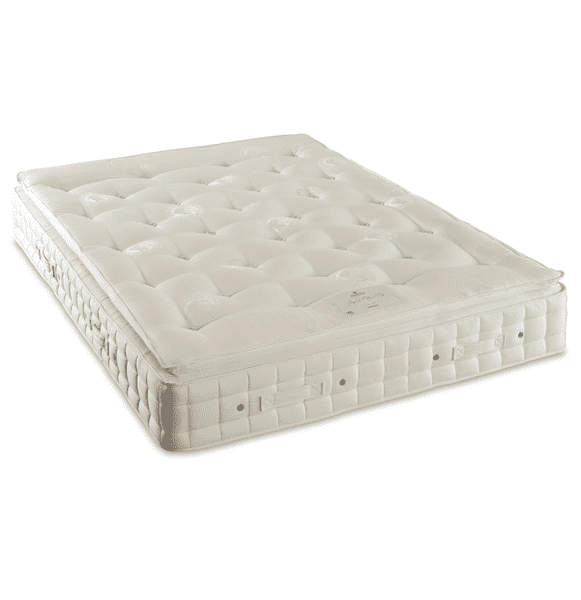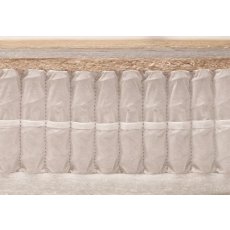Pillow Top Select
- 6-Turn ReActivePro™ with Triple Edge Protection™.
- 1 Fleece of 100% British Red Tractor Wool, Solotex™, eOlus™ Fibre Layer
- 2 rows of genuine hand side-stitching
Home Delivery
UK mainland delivery from £30.00
Check delivery cost
Finance Available
This item is available on finance.
Product Description
The Pillow Top Select mattress boasts soft Solotex™, a fleece of British wool and a deep layer of Himalayan allo, kapok and cotton to provide sumptuous support.
This luxury mattress features a ReActivePro™ pocket spring system, where each spring has 6 active turns and the mattress edge is protected by a slightly higher tension spring at the edge. In addition, two rows of genuine hand side-stitching enhance the support allowing you to fully use the whole sleep surface.
The signature Hypnos God of Sleep woven cover on the mattress is made from responsibly sourced cotton infused with a treatment, derived from natural extracts, to meet fire retardancy standards.
Finishing touches
Each and every luxury mattress is made bespoke to you and is meticulously handcatfted to bring you comfort, relaxation and pleasure. You will never own a more comfortable and beautiful bed.
Why not enhance your comfort further with deliciously comfortable Hypnos pillows and bedding accessories?
Materials
1 Fleece of 100% British Red Tractor Wool, Solotex™, eOlus™ Fibre Layer
135cm: (W)135cm x (D)29cm x (L)190cm
150cm: (W)150cm x (D)29cm x (L)200cm
180cm: (W)180cm x (D)29cm x (L)200cm







Save and share...
wish listShare
Pillow Top Select
Facebook Twitter Email Pinterest Telegram